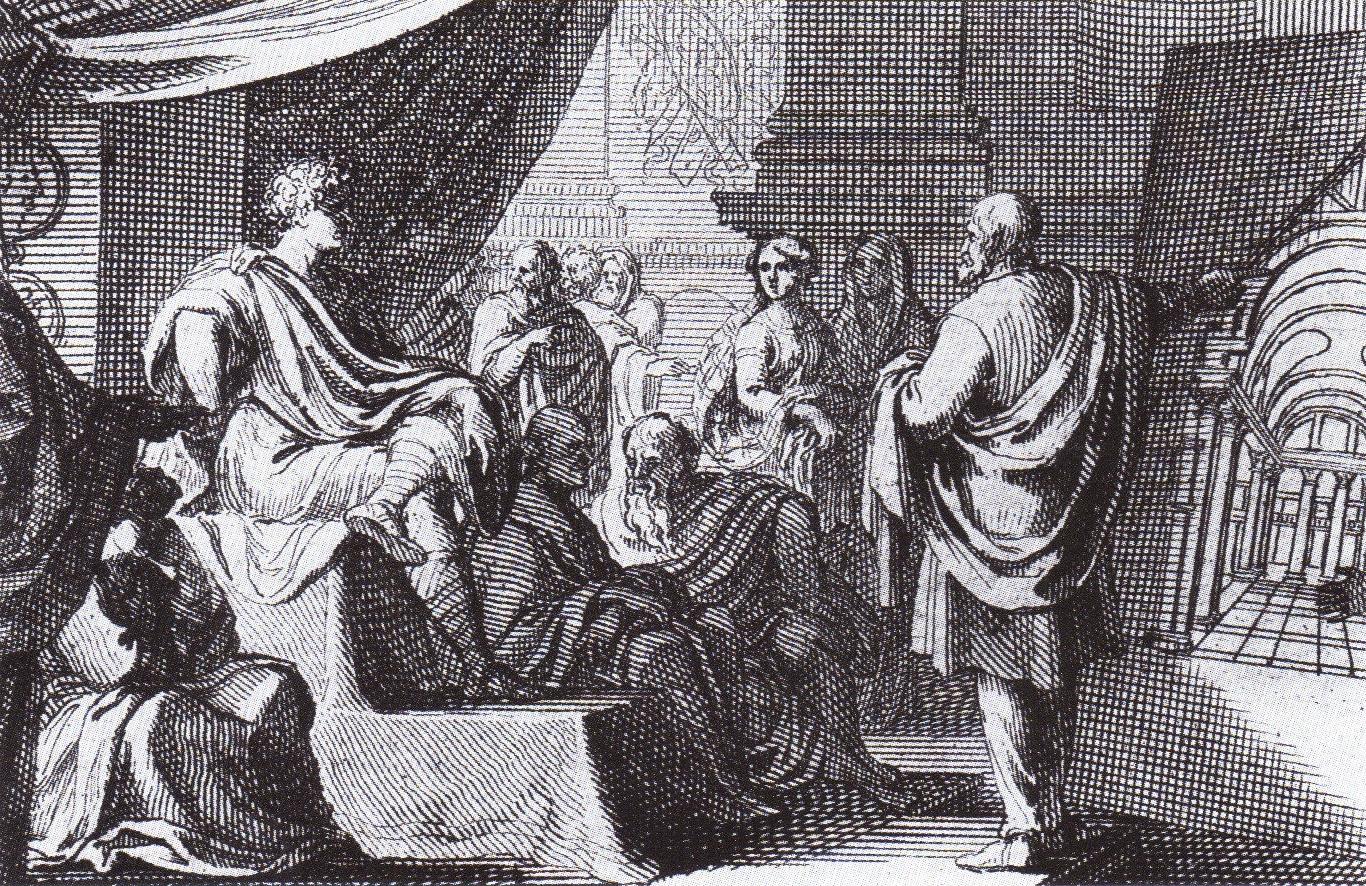Zdroj: De architectura (The Ten Books On Architecture) (~ 15BC), Book II, Chapter V, Sec. 2
Marcus Vitruvius Pollio: Citáty v angličtine
Zdroj: De architectura (The Ten Books On Architecture) (~ 15BC), Book III, Chapter IV, Sec. 4
Zdroj: De architectura (The Ten Books On Architecture) (~ 15BC), Book II, Chapter VII, Sec. 2
Zdroj: De architectura (The Ten Books On Architecture) (~ 15BC), Book I, Chapter VII "The Sites for Public Buildings" Sec. 1
Zdroj: De architectura (The Ten Books On Architecture) (~ 15BC), Book X, Chapter I, Sec. 4
Zdroj: De architectura (The Ten Books On Architecture) (~ 15BC), Book II, Chapter I "The Origin of the Dwelling House" Sec. 1
Zdroj: De architectura (The Ten Books On Architecture) (~ 15BC), Book II, Chapter VIII, Sec. 16
Zdroj: De architectura (The Ten Books On Architecture) (~ 15BC), Book II, Chapter IX, Sec. 4
Introduction, Sec. 3
De architectura (The Ten Books On Architecture) (~ 15BC), Book VI
Zdroj: De architectura (The Ten Books On Architecture) (~ 15BC), Book II, Chapter VIII, Sec. 18
Preface, Sec. 3 (dedication to Imperator Caesar)
De architectura (The Ten Books On Architecture) (~ 15BC), Book I
Zdroj: De architectura (The Ten Books On Architecture) (~ 15BC), Book II, Chapter I, Sec. 3
“Apollo at Delphi, through the oracular utterance of his priestess, pronounced Socrates the wisest of men. Of him it is related that he said with sagacity and great learning that the human breast should have been furnished with open windows, so that men might not keep their feelings concealed, but have them open to the view. Oh that nature, following his idea, had constructed them thus unfolded and obvious to the view.”
Delphicus Apollo Socratem omnium sapientissimum Pythiae responsis est professus. Is autem memoratur prudenter doctissimeque dixisse, oportuisse hominum pectora fenestrata et aperta esse, uti non occultos haberent sensus sed patentes ad considerandum. Utinam vero rerum natura sententiam eius secuta explicata et apparentia ea constituisset!
Preface, Sec. 1
De architectura (The Ten Books On Architecture) (~ 15BC), Book III
Zdroj: De architectura (The Ten Books On Architecture) (~ 15BC), Book II, Chapter II "On the Primordial Substance according to the Physicists" Sec. 1
“Bricks should be made in Spring or Autumn so that they may dry uniformly.”
Zdroj: De architectura (The Ten Books On Architecture) (~ 15BC), Book II, Chapter III, Sec. 2
Zdroj: De architectura (The Ten Books On Architecture) (~ 15BC), Book I, Chapter I, Sec. 13
Alternate translation: The voice is a flowing breath, made sensible to the organ of hearing by the movements it produces in the air. It is propagated in infinite numbers of circular zones, exactly as when a stone is thrown into a pool of standing water countless circular undulations are generated therein, which, increasing as they recede from the center, spread out over a great distance, unless the narrowness of the locality or some obstacle prevent their reaching their termination; for the first line or waves, when impeded by obstructions, throw by their backward swell the succeeding circular lines of waves into confusion. Quoted by Ernst Mach, The Science of Mechanics: A Critical and Historical Account of its Development (1893, 1960) Tr. Thomas J. McCormack
Zdroj: De architectura (The Ten Books On Architecture) (~ 15BC), Book V, Chapter IV, Sec. 6
Zdroj: De architectura (The Ten Books On Architecture) (~ 15BC), Book I, Chapter VI, Sec. 11
Zdroj: De architectura (The Ten Books On Architecture) (~ 15BC), Book I, Chapter II, Sec. 2
Zdroj: De architectura (The Ten Books On Architecture) (~ 15BC), Book I, Chapter IV, Sec. 3
Zdroj: De architectura (The Ten Books On Architecture) (~ 15BC), Book II, Chapter I, Sec. 8
Introduction, Sec. 3
De architectura (The Ten Books On Architecture) (~ 15BC), Book V
Introduction, Sec. 5
De architectura (The Ten Books On Architecture) (~ 15BC), Book II
Zdroj: De architectura (The Ten Books On Architecture) (~ 15BC), Book II, Chapter IX, Sec. 17
Zdroj: De architectura (The Ten Books On Architecture) (~ 15BC), Book II, Chapter VII "Stone" Sec. 1
Zdroj: De architectura (The Ten Books On Architecture) (~ 15BC), Book I, Chapter V, Sec. 5
“From food and water, then, we may learn whether sites are naturally unhealthy or healthy.”
Zdroj: De architectura (The Ten Books On Architecture) (~ 15BC), Book I, Chapter IV, Sec. 10
Zdroj: De architectura (The Ten Books On Architecture) (~ 15BC), Book I, Chapter I, Sec. 17
Zdroj: De architectura (The Ten Books On Architecture) (~ 15BC), Book I, Chapter I, Sec. 15
“For not all things are practicable on identical principles”
Zdroj: De architectura (The Ten Books On Architecture) (~ 15BC), Book X, Chapter XVI, Sec. 5
